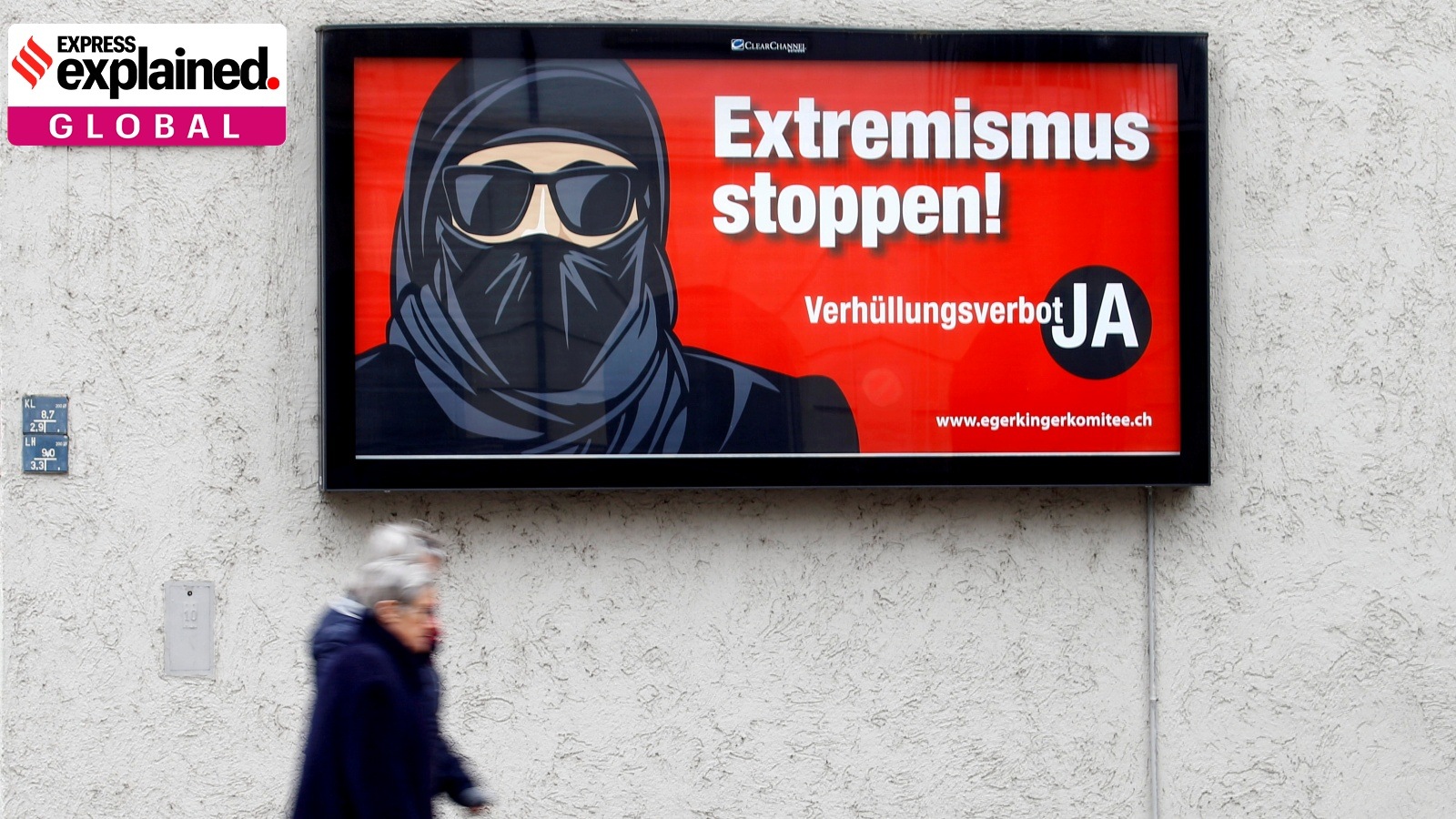Swiss ‘burqa ban’ comes into effect: Why did the country ban face coverings
Switzerland Burqa Ban: In Switzerland, while almost no one wears burqa, only about 30 women wear the niqab, according to research by the University of Lucerne, Germany. Around 5% of Switzerland's population of 8.6 million people are Muslim
 A poster of the initiative committee against wearing the burqa reading "Stop extremism! Veil ban - Yes" is seen in Zurich, Switzerland, in February, 2021. (Photo: Reuters/File)
A poster of the initiative committee against wearing the burqa reading "Stop extremism! Veil ban - Yes" is seen in Zurich, Switzerland, in February, 2021. (Photo: Reuters/File)Switzerland Burqa Ban News: A Swiss prohibition on facial coverings in public spaces widely known as the “burqa ban” took effect on Wednesday (January 1). Anyone who unlawfully flouts the prohibition faces a fine of up to 1,000 Swiss francs ($1,144).
Here is a look at why Switzerland banned face coverings, and what exactly the prohibition is.
Why did Switzerland ban face coverings?
In 2021, Swiss people narrowly voted in favour of banning face coverings in public, including the burka and niqab worn by Muslim women. Results showed the measure had passed by 51.2% to 48.8% in a referendum.
People in Switzerland are given a direct say in their own affairs under the country’s system of democracy. They are regularly asked to vote in referendums on various national or regional issues.
The proposal to ban face coverings was brought by the right-wing Swiss People’s Party (SVP) and campaigned with slogans such as “Stop extremism”. Although the plan did not mention Islam directly and also called for prohibiting violent street protesters from wearing masks, it was widely seen as the “burqa ban”. The Swiss government, however, opposed it arguing it was not up to the state to dictate what women wear, according to a report by the BBC.
According to research by the University of Lucerne (in German), almost no-one in Switzerland wears a burka and only around 30 women wear the niqab. About 5% of Switzerland’s population of 8.6 million people are Muslim, most originating from Turkey, Bosnia and Kosovo.
Muslim community and human rights organisations such as Amnesty International criticised the passing of the prohibition. In a statement, Amnesty International called the ban “a dangerous policy that violates women’s rights, including to freedom of expression and religion”.
In Switzerland, while almost no one wears burqa, only about 30 women wear the niqab, according to research by the University of Lucerne, Germany, the BBC report said. Around 5% of Switzerland’s population of 8.6 million people are Muslim.
After the referendum, the Swiss Parliament’s final legislative passage to the ban on face coverings came in September 2023. It was only in November 2024 that the government said the prohibition would come into effect from January 1, 2025.
What exactly is prohibited?
The measure involves a prohibition on covering the nose, mouth, and eyes in both public spaces and private buildings accessible to the public. However, there are some exceptions.
The ban does not apply to planes or in diplomatic and consular premises, and faces may also be covered in places of worship and other sacred sites.
Facial coverings will remain permitted for reasons relating to health and safety, for native customs, or due to weather conditions, it said. They would also be allowed on artistic and entertainment grounds and for advertising.
If such coverings are needed for personal protection in exercising freedom of expression and assembly, they should be permitted provided the responsible authority has already approved them and public order is not compromised.
(With inputs from Reuters)
- 01
- 02
- 03
- 04
- 05






































